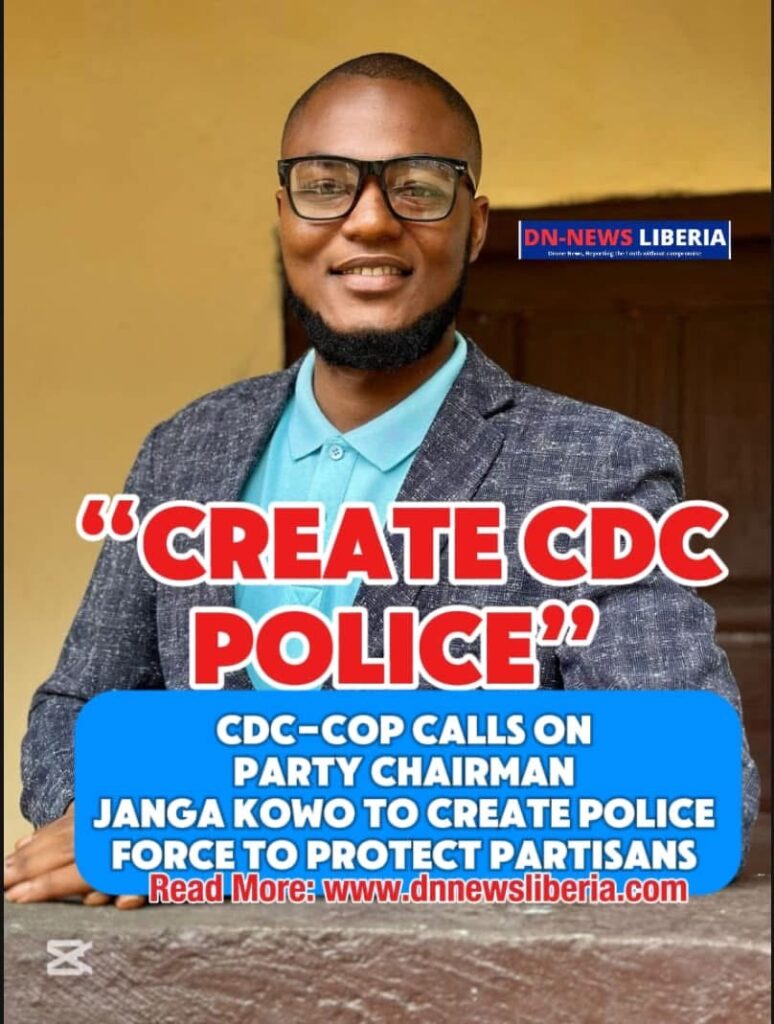Monrovia, Liberia – The Congress for Democratic Change Council of Patriots (CDC-COP) has issued a strong call for the establishment of a “CDC Police” to protect its partisans and ordinary Liberians, citing what it describes as growing insecurity, police brutality, and human rights violations under the Boakai-Koung administration.
In a fiery statement released on February 10, 2025, the CDC-COP accused the government of overseeing a rise in mysterious deaths and political repression. The group claims that 187 unexplained deaths have occurred since President Joseph Boakai and Vice President Jeremiah Koung took office, with 59 of the victims allegedly being CDC supporters.
Against this backdrop, the CDC-COP is urging CDC Chairman Janga Kowo to create a separate security force dedicated to safeguarding the party’s members and other citizens who feel unprotected by state security.
“CDCians are living in fear in their communities, afraid to even express their political opinions for fear of being arrested by the Unity Party Police,” the statement read. “If Mr. Boakai fails to dismiss Gregory within the next 72 hours—starting now—we will call on the Chairman of the Congress for Democratic Change (CDC), Janga Kowo, to establish the CDC Police to protect CDCians, who have become vulnerable victims of Unity Party Police brutality and untimely deaths.”
The demand comes amid mounting criticism of Liberia’s security sector, particularly Inspector General Gregory O.W. Coleman, National Security Agency Director Prince C. Johnson II, and Executive Protection Service head Sam Gaye. CDC-COP has accused these officials of orchestrating police brutality, corruption, and targeted repression.
The call for a partisan security force has sparked concerns among political observers, with some warning that such a move could deepen divisions and escalate tensions in the country. There has been no immediate response from the government regarding CDC-COP’s demands.
As the 72-hour deadline set by the group approaches, political analysts and Liberians alike are watching closely to see how the Boakai administration will respond to the growing security debate


